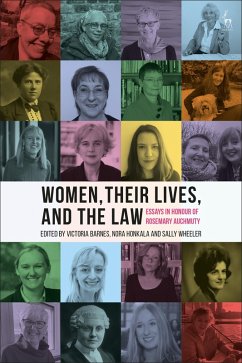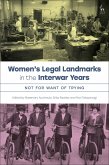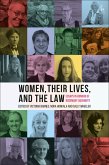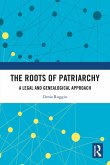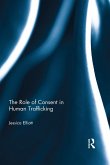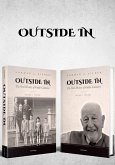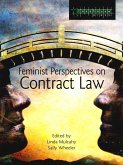This collection of essays honours Rosemary Auchmuty, Professor of Law at the University of Reading, UK. She has fostered the study of women's academic careers and, more politically, advanced progress on gender and equality issues including same-sex marriage and property law. Her research promotes the case of feminist legal history as a way of revealing the place of women and challenging dominant historical narratives that cast them aside.
Just as Rosemary's work does, the book seeks to end the marginalisation and exclusion of women in the legal world, by including them. The book begins fittingly with a discussion of Miss Bebb, the woman whose biography Auchmuty deployed to push feminist legal history into the mainstream. It turns then to a discussion of women known and unknown and their struggles within the legal profession offering within those chapters a critical appraisal of the role of history and biography as a methodology. From there it moves to consider feminist perspectives and critiques of the dominant structures of private law. This is followed by chapters that explore those who educate the legal profession within the academy. The chapters, and the collection as a whole, examine areas of law that have a deep significance for women's lives.
Just as Rosemary's work does, the book seeks to end the marginalisation and exclusion of women in the legal world, by including them. The book begins fittingly with a discussion of Miss Bebb, the woman whose biography Auchmuty deployed to push feminist legal history into the mainstream. It turns then to a discussion of women known and unknown and their struggles within the legal profession offering within those chapters a critical appraisal of the role of history and biography as a methodology. From there it moves to consider feminist perspectives and critiques of the dominant structures of private law. This is followed by chapters that explore those who educate the legal profession within the academy. The chapters, and the collection as a whole, examine areas of law that have a deep significance for women's lives.

